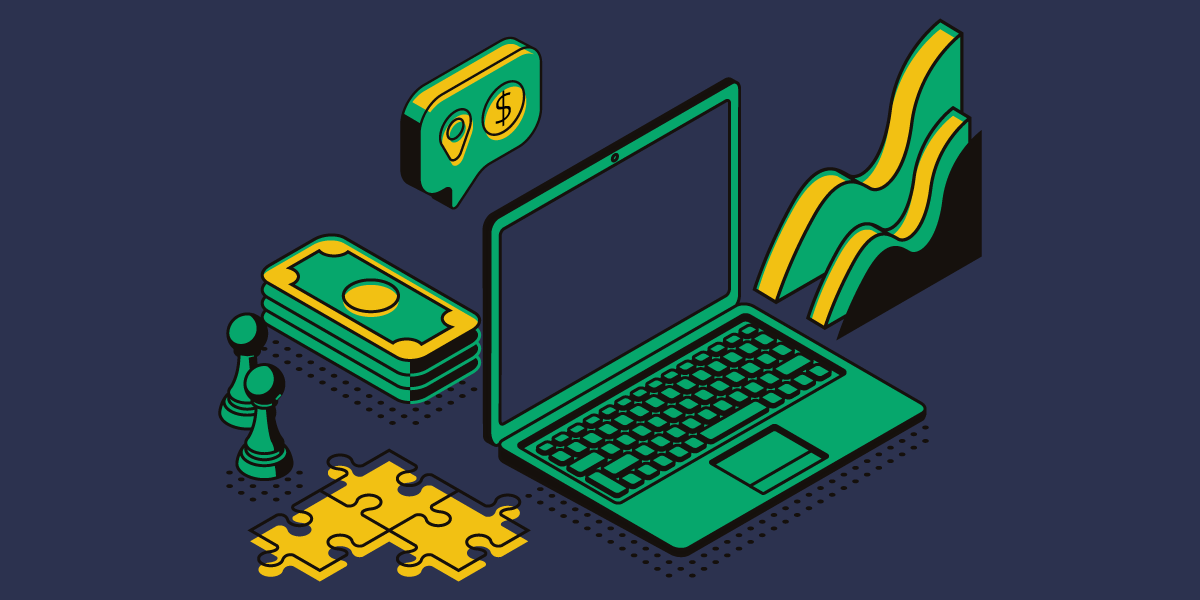Credit cards are widely regarded as a convenient and versatile financial tool, offering benefits such as rewards programs, fraud protection, and the ability to build a strong credit history. However, they are not always the best payment method in every situation. While using a credit card can provide short-term financial flexibility, certain scenarios make alternative payment methods more practical and financially responsible. In some cases, using a credit card can result in unnecessary fees, accumulating debt, or even security risks.
This article explores various instances when it doesn’t make sense to pay with credit cards and highlights alternative payment options that may be more suitable.
When High-Interest Rates Create a Debt Trap
One of the primary drawbacks of using credit cards is the risk of carrying a balance and accumulating high-interest charges. Credit card interest rates are often significantly higher than those associated with personal loans or other financing options. If you are unable to pay your full balance at the end of each billing cycle, the accumulating interest can quickly inflate the total cost of your purchases. Over time, this can lead to a debt spiral that is difficult to escape.
For individuals who struggle with managing debt or are already dealing with outstanding credit card balances, using a credit card for additional purchases may not be the best financial decision. Instead, relying on a debit card, cash, or savings can help prevent further debt accumulation and reduce financial stress.
When Additional Fees Increase Costs
Credit card transactions can sometimes include additional costs that make them less appealing compared to other payment methods. Some businesses charge a convenience fee for processing credit card payments, which can range from a small percentage to a significant surcharge. These fees are often found in utility payments, tax payments, and certain retail transactions where businesses pass on processing costs to consumers.
Additionally, foreign transaction fees can make international purchases more expensive. Many credit card issuers charge a percentage of the transaction amount when you use your card abroad or shop with international merchants. While some premium credit cards offer no foreign transaction fees, many standard credit cards include this extra charge, making debit cards or cash a more cost-effective alternative for overseas transactions.
When Making Small Purchases That Add Up Over Time
Using a credit card for minor everyday purchases might seem convenient, but it can lead to financial mismanagement. Small transactions may not seem significant on their own, but when they accumulate over a month, they can contribute to a larger balance than anticipated. This often results in individuals struggling to pay off their balance in full, which can lead to interest charges and growing debt.
For those who prefer to maintain strict control over their spending, using cash or a debit card for small daily expenses can be a more effective strategy. Not only does this approach help curb unnecessary spending, but it also ensures that you are only using money that is readily available in your account.
When Security Risks Are Higher
Credit cards offer fraud protection, but they are not entirely immune to security risks. When shopping online or using your credit card in places where security might be compromised, you risk exposing your card information to potential fraud. Cybercriminals often target online payment systems, and data breaches at major retailers have become increasingly common.
In high-risk situations, alternative payment methods such as virtual cards, PayPal, or mobile payment services can provide an extra layer of security. These methods help protect your credit card information from being directly exposed to potential threats, reducing the likelihood of fraud.
When You Are Trying to Stick to a Budget
Credit cards can make it easier to overspend, especially when impulse purchases are involved. The ability to delay payment until the end of a billing cycle often gives a false sense of financial freedom, leading to spending beyond one’s means. Individuals who are trying to adhere to a strict budget may find that using a credit card makes it more challenging to control their expenses.
Using cash or a prepaid debit card can serve as a more effective budgeting tool. With these payment methods, you are limited to the amount of money you physically have, reducing the temptation to overspend. This approach also helps reinforce better financial discipline and ensures that your spending aligns with your available resources.
When You Do Not Have an Emergency Fund
Relying on credit cards to cover emergency expenses can be problematic, particularly if you do not have a plan to pay off the debt quickly. While credit cards can provide a temporary financial cushion, high-interest rates can make repaying the balance difficult, leading to long-term debt accumulation.
Building an emergency fund is a more sustainable solution for handling unexpected expenses. Keeping three to six months' worth of living expenses in a readily accessible savings account can prevent the need to rely on credit cards during financial emergencies. This ensures that you have a financial safety net without incurring interest charges or risking long-term debt.
When Paying for Recurring Subscriptions
Many people use credit cards to pay for subscription services, but this can sometimes lead to financial oversight. If you sign up for multiple subscriptions and forget to monitor your spending, these charges can add up over time. Additionally, if a subscription service automatically renews and you are not actively using it, you might be paying for something you no longer need.
To avoid this issue, consider using a debit card or setting up payments through a bank account. This allows you to have a clearer picture of your expenses and ensures that you are not unknowingly accumulating unnecessary charges on your credit card.
When Your Credit Score is a Concern
If you are trying to improve your credit score, using a credit card irresponsibly can do more harm than good. High credit utilization, missed payments, and carrying a large balance can negatively impact your credit score. If you are struggling with managing credit responsibly, reducing credit card usage can help prevent further damage to your financial profile.
Instead, consider using a debit card or cash for your daily purchases while focusing on paying down existing credit card debt. This approach helps improve your overall financial health and puts you in a better position to rebuild your credit over time.
When Paying Friends and Family
Credit cards are not always the best option for making payments to friends or family members. Many peer-to-peer payment services, such as Venmo, PayPal, and Zelle, charge fees when a credit card is used for personal transactions. These fees can be avoided by using a debit card or bank transfer instead.
Additionally, using credit cards for personal loans or informal agreements between friends and family can create financial complications. If you are unable to pay off the balance, it may strain relationships and lead to unnecessary financial stress. Using a more direct and fee-free payment method can help maintain transparency and avoid extra costs.
When Buying a Home or Financing a Large Purchase
Credit cards are not typically ideal for major expenses such as home purchases or financing large-ticket items. Mortgage lenders evaluate an individual’s credit utilization when approving home loans, and a high credit card balance can negatively impact your debt-to-income ratio. This can make securing a mortgage more difficult or lead to less favorable loan terms.
For significant expenses, exploring alternative financing options, such as personal loans, home equity loans, or installment payment plans, can provide a more structured and cost-effective approach to managing large purchases.
Conclusion
While credit cards offer convenience and financial benefits, they are not always the best payment option in every situation. High-interest rates, additional fees, security risks, and budgeting challenges make it important to assess when it doesn’t make sense to pay with credit cards. By carefully evaluating your financial situation and considering alternative payment methods such as cash, debit cards, bank transfers, or savings, you can make more informed decisions that support long-term financial stability.
Ultimately, using credit responsibly requires a strategic approach. Knowing when to avoid credit card payments can help prevent unnecessary debt, protect your financial health, and provide greater control over your expenses. Being mindful of when and how you use credit can lead to smarter financial habits and a more secure financial future.

